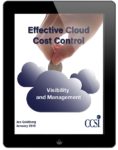We live in a digital world where every company, whether it’s small or big, has to deal with vast amounts of various data. But unfortunately, not every company has a data manager who knows how to turn big data into a competitive advantage.
Are you looking for professional advice regarding business data management? Here are six steps you should take to lead your company to success.
Audit your current business data
Think about the data you currently collect and store – do you use it wisely?
It happens pretty often that companies gather tons of data that they do not really need. Take a look at the following simple example.
Company X conducts a customer survey where it asks respondents to provide a full name. However, full customers’ names are never utilized for analytics and marketing purposes. For instance, when it comes to email personalization, the company uses the first names only.
The question is: is it a wise idea to collect and store such information as customers’ family names if it never gets in handy? Nope. It’s a bad idea. Storing of unnecessary information wastes the company’s resources.
Therefore, we highly suggest you audit a database on a regular basis to ensure that you do not overpay for the storage of data and files that go unused.
Define your business goals
What business goals have you set? What specific data you need to collect and process to achieve these goals. Think rationally, and focus on the data that can benefit your business in the short run and long run.
Every time you design a survey, landing-page form, or other tools that allow you to collect, you should data ask yourself:
- Do I need to add this very question?
- Should I ask customers/leads to provide this specific information?
- Will it help me to achieve my business goals?
According to statistics, between 60% and 73% of all data within a company goes unused. So be wise and ensure that from this moment, you gather only relevant data.
Gather information ethically
Business data management must be all about transparency. You shouldn’t hide from your customers and other stakeholders the fact that you collect and use their private data. You should be honest and open about what information you use and for what purposes.
It’s unethical to use someone else’s information without notice. Even more, it’s risky. If customers get to know that you are stealing their personal information, or even worse, if a data breach happens, people will lose trust in your company completely.
Here are a few ideas on how you can gather information the right way:
- Add Privacy Policy on your website and mobile app.
- Encourage your website visitors to opt in to share valuable information through a separate dialogue box.
- Create a straightforward survey to ask stakeholders to provide you with specific information.
Take security seriously
Do you know that data breach may lead to heavy financial loss and even bankruptcy? Recent studies show that a data breach costs a company, on average, $8.19 million, and one record breach costs around $242. You don’t want to lose your company because of the data breach, don’t you?
To prevent possible problems, you should secure all the data you collect. You can do it by taking the following steps:
- By investing in a reliable CRM and backup system
- By using effective cloud solutions
- By educating your employees regarding data security
It’s worth mentioning that if you employ data protection, it will make a positive impact on your brand. It will improve your credibility and help you to show your customers that they can trust you fully.
Build a data backup strategy
Let’s talk about the data backup strategy in more detail.
Do you have such a strategy? We hope you have because, according to statistics, more than half of all small businesses experienced a breach within last year. And if you have never faced a data breach before, there is a chance that you will suffer from it in the nearest future.
For building an effective data backup strategy, you should answer the following questions:
- How much money are you ready to spend on data backup? If you have a tight budget, you will have to decide what data to backup, and what data to put at risk of loss.
- What data is vital for your company? Without what specific data, your business will not keep running?
- Where will you store your backups: on a network-connected drive, file/backup server, online backup service, USB memory key, etc.?
- What is your recovery plan? What concrete steps will you take to get lost data back and get your business back on track?
Find out whether the costs are justified
Business is all about money. You should never forget this simple truth.
And when it comes to business data management, you should find out whether it’s worth to collect and process data or not. If the amount of money spent on data management exceeds the possible benefits, then you shouldn’t use that data at all.
Let’s say you want to improve your ad copy in order to increase monthly revenue by $3,000. For getting an idea of what you need to improve in your ad, you need to run a survey that will cost you $1,500, pay $1,000 for data management software, and pay $500 to experts who will analyze the data.
In other words, the costs of using data will be equal to the potential revenue you expect to generate. In the case described, there is no sense to invest money in data management.
In conclusion
Keep in mind that if you manage data improperly, that may slow down the business growth and cause more problems than benefits. But if you collect, process, and store data wisely, that will make your company thrive.
So look through this article once again, and take six steps to success.
Cloud Cost Containment
Visibility and Management Whitepaper
Cloud services offer huge opportunities to transform speed, efficiency and operating costs of an organization. But forecasting and controlling cloud costs from multiple providers can quickly become an unmanageable headache that delays or even puts a stop to a successful innovation. Learn more with this free whitepaper.

Author Bio: Daniela McVicker is a blogger and a freelance writer who works closely with B2B and B2C businesses providing blog writing, copywriting, and ghostwriting services. Currently, she contributes to Topwritersreview. When Daniela isn’t writing, she loves to travel, read romance and science fiction, and try new wines.
Daniela is a guest blogger, all opinions are her own.








